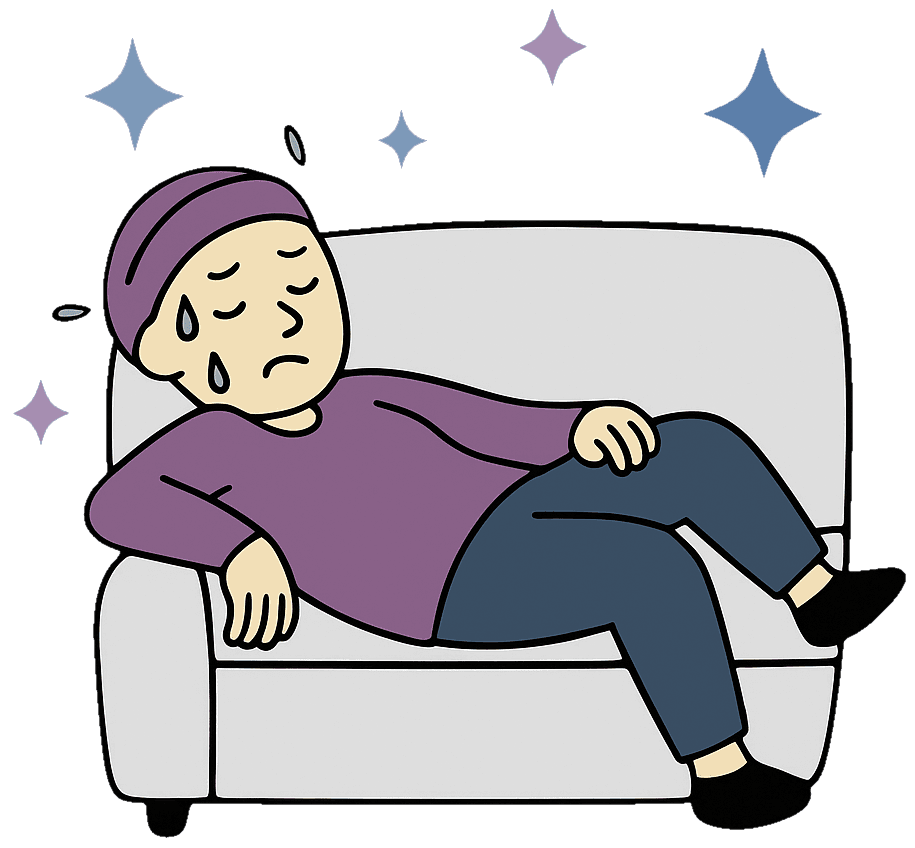Cancer Support Groups and Hotlines
How to Find a Community That "Gets It" and Reduce Feelings of Isolation
Your friends and family are amazing, but they don't truly know what it's like. They haven't felt the specific ache of chemo-induced fatigue, the gut-wrenching fear of waiting for scan results, or the strange sense of isolation that comes with a cancer diagnosis.
Sometimes, the only people who can truly understand are those walking the same path. This is the power of peer support.
As a survivor, connecting with other patients was my lifeline. It was where I could be completely honest about my fears and get practical, been-there-done-that advice that no doctor could provide. This guide is your map to finding that same connection through cancer support groups and hotlines.
Quick Guide: Your Peer Support Action Plan
Ask Your Oncology Social Worker. They are your best resource for finding professionally-led support groups offered through your cancer center or in your local community.
Explore National Organizations Online. The Cancer Support Community and CancerCare offer a huge variety of free, virtual support groups for specific diagnoses, age groups, and caregivers. * Save a Hotline Number in Your Phone. For immediate, 24/7 support, save the National Cancer Institute's Cancer Information Service number: 1-800-4-CANCER (1-800-422-6237).
Try a Few to Find Your Fit. Every group has a different personality. Don't be discouraged if the first one you try doesn't feel right. It's okay to shop around to find your community.
Why Connecting with Peers is So Powerful
While one-on-one therapy offers professional guidance, peer support provides a different, equally vital form of healing.
It Erases Isolation. The most common feeling after a diagnosis is that you are utterly alone. Hearing someone else voice your exact fear is a profoundly validating experience that makes you feel seen and understood.
It's a Source of Practical, Real-World Tips. Peers are the best source for non-medical advice on things like managing side effects, what to pack in your chemo bag, or how to navigate your hospital's parking garage.
It's a Safe Space to Be Honest. A support group is one of the few places you can talk openly about your darkest fears, frustrations, and even the moments of dark humor, without worrying about scaring your loved ones.
It Provides a Sense of Hope. Seeing and talking to people who are further along in their treatment or are long-term survivors provides a tangible, living example that there is a path forward.
Step 1: Decide What Kind of Support You Need
Support groups come in many different formats. Thinking about what you're most comfortable with will help you find the right one faster.
In-Person vs. Virtual
In-person groups, often held at your cancer center or a local community hub like Gilda's Club, offer face-to-face connection.
Virtual (online or telephone) groups offer incredible convenience and accessibility, especially on days when you are too fatigued to leave the house.
Diagnosis-Specific vs. General
Diagnosis-specific groups (e.g., for breast cancer, lymphoma, etc.) are great for discussing treatment-specific issues.
General cancer groups can provide a broader perspective and a diverse community.
Professionally-Led vs. Peer-Run
Professionally-led groups, often facilitated by an oncology social worker, provide a structured and guided experience.
Peer-run groups are more informal and are led by patient volunteers.
Step 2: Start Your Search with Trusted National Organizations
These organizations are the best place to start, especially for finding high-quality virtual support groups.
Cancer Support Community: This is a leading provider of professionally-led support groups. Visit their website to find a virtual group or a local affiliate (like Gilda's Club) near you.
CancerCare: Offers over 150 free, professionally-led online and telephone support groups for a huge variety of diagnoses, topics, and populations.
American Cancer Society (ACS): The ACS offers several online communities and support programs, which you can find by calling their 24/7 helpline.
Survivor Tip: When you first join a group, it's okay to just listen. You don't have to share your whole story on day one. For my first few meetings, I just soaked in the wisdom and relief of being around people who "got it." You can participate at your own pace.
A Final Word: You Don't Have to Carry This Alone
A cancer diagnosis can feel incredibly lonely, but millions of people are walking this path alongside you. Connecting with them is not a sign of weakness; it's a powerful act of self-care and a vital part of your healing journey. Finding your community can provide the strength, hope, and practical advice you need to keep moving forward.
Need Help Finding Your Community?
Sifting through the hundreds of available support groups to find the right one for your diagnosis, personality, and schedule can be another overwhelming task. Evolvve Health can provide the steady support you need to get connected.
Talk: Book a free initial consultation to discuss your need for connection and support.
Map: We'll help you create a personalized map of the best and most relevant support groups for your unique situation.
Activate: We will guide you through the process of joining a group, helping you find a community where you feel seen, heard, and understood.
This article is for educational purposes and is not a substitute for professional medical or mental health advice. If you are in crisis, please call 988 or go to the nearest emergency room.
Related Topics: cancer support groups, free cancer support, online support groups for cancer, CancerCare support groups, Cancer Support Community, emotional support for cancer, cancer patient resources, Gilda's Club.






